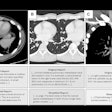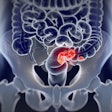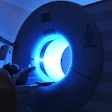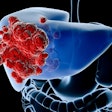Wednesday, December 2 | 10:50 a.m.-11:00 a.m. | SSK03-03 | Room S502AB
There are few outcomes studies with regard to coronary CT angiography's (CTA) ability to diagnose and rule out coronary artery disease. But what people want to know when a CTA test is negative is that there is no coronary artery disease.The study of 1,157 patients at intermediate risk of coronary artery disease but negative at coronary CTA followed the cohort after discharge to assess cardiac events. At a mean 13 months' follow up, the patients were classified according to CCTA findings into groups depending on the presence of plaque and/or stenosis.
On multivariate regression analysis, greater than 50% stenosis at coronary CCTA was the strongest predictor (p < 0.0001) of adverse events, and a noncalcifying plaque component (including mixed types) was a less significant (p = 0.04) predictor. But other coronary CTA findings and conventional risk factors had no predictive value, according to presenter Dr. Gudrun Feuchtner of University Hospital Innsbruck, Austria.
"Our data show that CTA is indeed highly safe (99%) to assure patients that they do not have coronary artery disease or cardiac events within one or two years," Feuchtner told AuntMinnie.com. The data also point to noncalcified plaque as predictors of adverse outcomes. "One cardiac event was noted in patient with a noncalcified plaque that ruptured," she said.




















